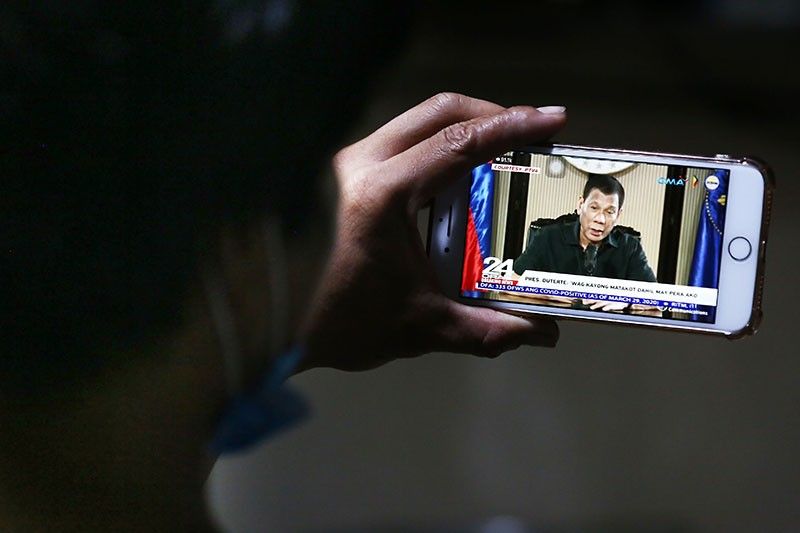Commentary: The digital new normal

As lockdown restrictions ease in Metro Manila, the nation is forced to confront the reality that the old streets and familiar haunts are not anymore, the same. The roads are less busy, and the malls are not buzzing with families and friends sharing meals and stories.
While many sectors of the economy buckled under the weight of the coronavirus crisis, the country’s digital backbone has remained robust and resilient: supporting struggling industries, creating new businesses and keeping a virus-weary public informed and entertained during the course of the pandemic.
Despite the lockdown, the country’s digital infrastructure was able to sustain the operations of the Business Process Outsourcing (BPO) industry, which contributes at least 12% to the country’s Gross Domestic Product and employs at least 1.2 million workers.
With millions of families holed up in their homes, the digital backbone has helped create thousands of new home-based chefs and food delivery services, with sushi bake and Dalgona coffee filling the needs of millions of social media users.
In fact, the rise of home-based microbusinesses has prompted the Bureau of Internal Revenue to make an ill-timed reminder on the need to document business activities. We have also discovered new social media stars and created new memes which had entertained the public to no end.
The surge in demand for digital services during the quarantine has raised questions on whether the country’s digital infrastructure is equipped to support these services as we contemplate a protracted pandemic.
No less than Department of Information and Communications Technology (DICT) Secretary Gregorio Honasan II sounded the alarm when he urged streaming and social media platforms to help ease data congestion.
As we reopen the economy, the role of digital infrastructure and services cannot be overstated. The BPO industry’s GDP contribution alone is almost twice (6.8%) that of the construction industry, considering that the main strategy of government to stimulate the economy is through the ‘Build Build Build’ Program.
In other words, government should create the enabling conditions to expedite the development of the country’s digital infrastructure.
To President Rodrigo Duterte’s credit, the long-delayed guidelines for common towers has already been issued by the DICT, which provides very specific timelines on the processing of permits by national agencies and local governments. There is also a prohibition on anti-competitive activities by tower companies and mobile network operators, to ensure public interest and least-cost pricing.
These guidelines will soon be put to the test, as the country struggles to close the gap of at least thirty thousand cell towers to adequately service the current demand.
In line with the Anti-Red Tape Act (ARTA), a rationalization of all national and local government permits touching on civil works activities necessary for building the towers and connecting fiber cable networks must be affected down to the barangay level. This purge of corruption prone bureaucratic delays should be guided by the citizen centric goal of giving access to the best ICT services that would empower all Filipinos to be most productive and stimulate business growth.
On the other hand, government should consider undertaking public-private partnerships with mobile network operators and internet service providers to support much-needed public services in localities, such as blended or online learning. These PPPs are not necessarily revenue-generating and may be implemented without costs to both government and the public.
Moreover, the national government should fully embrace its leading role in providing internet connectivity to underserved areas. With complications on human contact in this pandemic, free and accessible internet can make a real difference in the health, education and productivity outcomes of vulnerable communities around the country.
In rural areas without immediate access to healthcare facilities, adequate but reliable internet allows telemedicine to service small sitios to address general health concerns. Online learning can be deployed in urban poor communities with data use subsidized by government. Capability-building sessions may be undertaken via online conferencing.
As the nation enters the new normal with the coronavirus still around the corner, we have to create new ways of living our lives, adapting to the limits of what is possible while considering social distancing protocols. Our digital life is here to stay, and with no doubt, the infrastructure to support it should be made policy priority of government in the days to come.
Terry Ridon is a non-resident fellow of think tank Stratbase ADR Institute and a convenor of InfraWatch PH.
- Latest


























